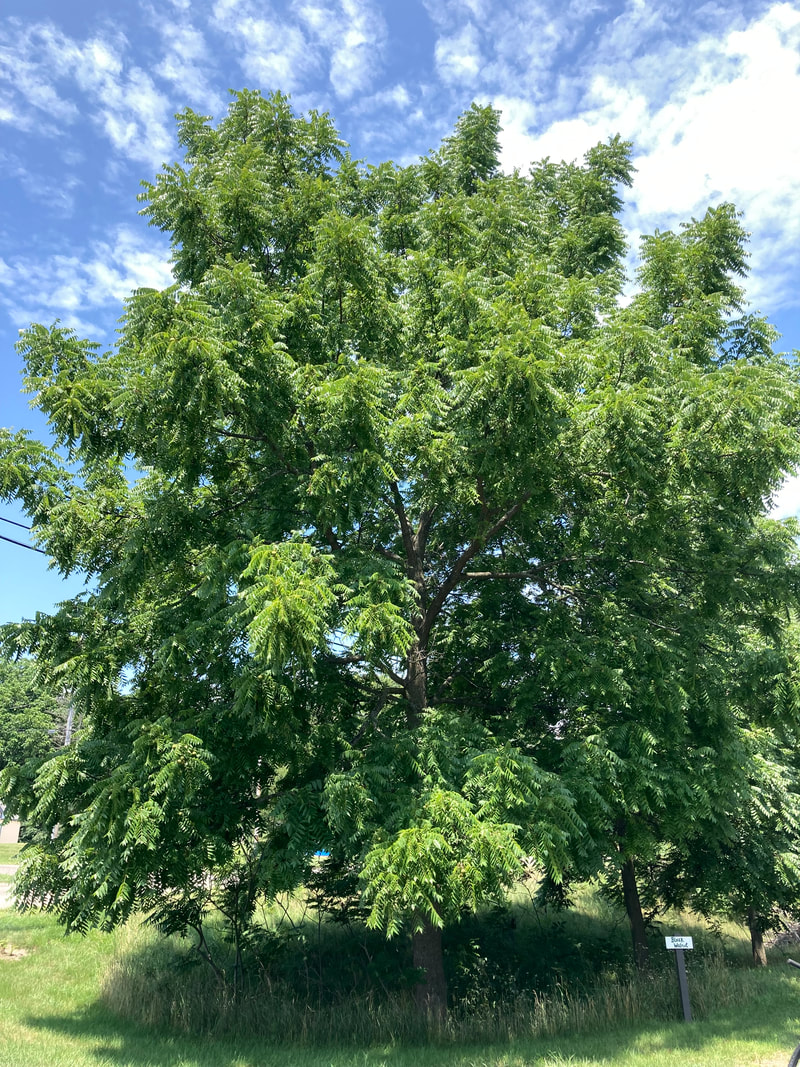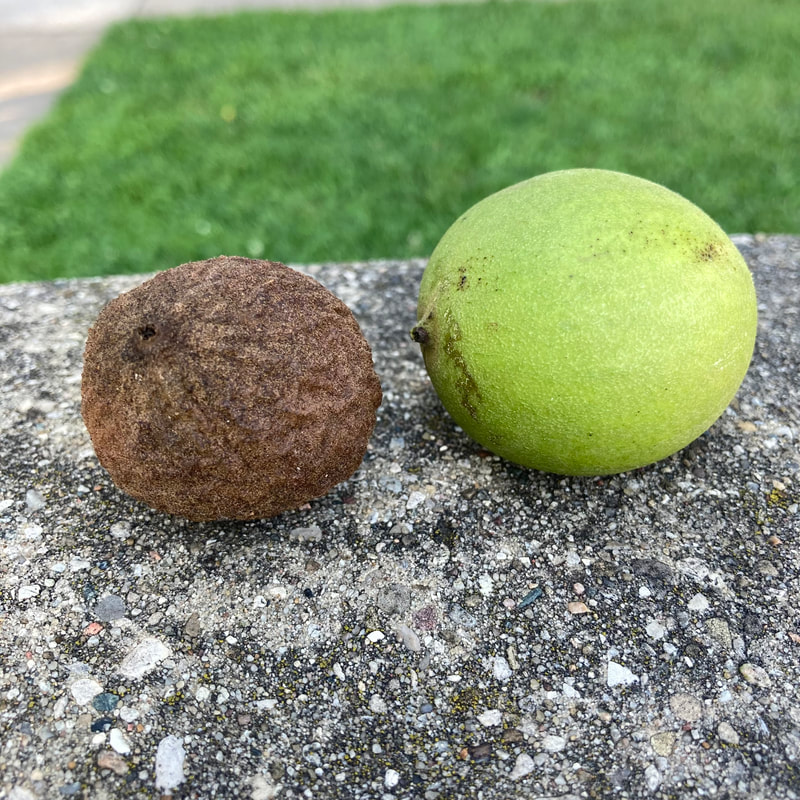|
Photos and article by Donna Iverson If you have ever walked or biked on the Hart-Montague Bike Trail, you may have noticed that some of the trees are labeled. Just north of Montague, one of the first labeled trees is a magnificent Black Walnut tree (Juglans nigra). Native to Michigan and much of North America, you can find it mostly in riparian zones. Riparian meaning along the edges of streams, rivers, lakes and vernal pools. Black Walnut is also monoecious, having both male and female reproductive florets on the same tree. During September and October, the tree drops mature black walnuts to the ground. They are covered in a thick husk which when touched leave a greenish-brown inky substance on your hands. It is best to collect them with gloves on. After collection, the walnuts need to be dried and the husk cracked open. Stepping on them works. For more details on processing, roasting, storing and cooking black walnuts, check out: https://delishably.com/fruits/BLACK-WALNUTS-HARVESTING-STORING-AND-COOKING Although Black Walnut makes a superior shade tree, it is a messy tree during the late summer and early fall because of these falling 2-3 inch nuts. But come October, the Black Walnut tree leaves turn bright yellow and it is one of the last trees to lose its leaves as winter approaches. Black Walnut trees can be grown from a nut. It will, however, be 10 to 15 years before they produce fruit. They grow a deep two root which makes transplanting nearly impossible. They can live for 150 to 250 years with trunks that are 3 to 6 feet in diameter. Heights range from 80 to 120 feet. As a lumber tree, Black Walnut is very valuable. A single tree can net $3000 in wood planks which are used today for furniture and cabinets. As edible landscapes become more popular, the Black Walnut can supply food for birds, animals and people. Songbirds that favor it include chickadees, bluebirds, wrens and nuthatches. Squirrels, raccoons, wild turkeys, and bears often seek its protection during the winter months. Medicinally, it has been used to treat skin rashes, diarrhea and constipation. The colonists used the wood for fence posts, poles and siding. Vegetable gardeners need to beware, however. Black Walnut fruit husks, leaves and roots contain a chemical called juglone. It kills any plants nearby, especially tomatoes.
0 Comments
Your comment will be posted after it is approved.
Leave a Reply. |
Archives
July 2024
Categories |


 RSS Feed
RSS Feed